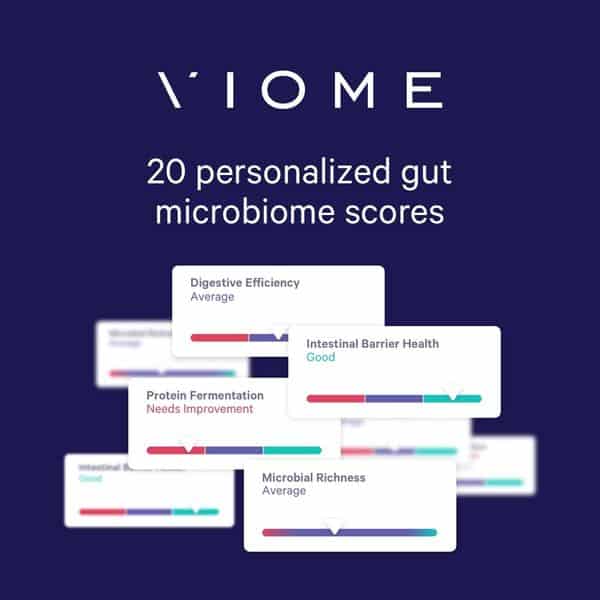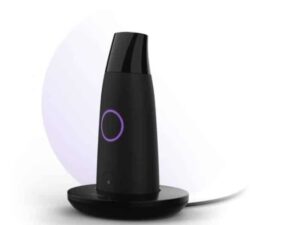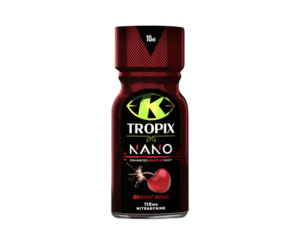3-Oxypyridine: Exploring the Potential Nootropic Benefits and Risks
In the vast landscape of nootropic compounds, 3-oxypyridine has garnered attention for its potential cognitive-enhancing properties. As a proponent of evidence-based, holistic approaches to cognitive optimization, Holistic Nootropics delves into the science behind 3-oxypyridine, examining its mechanisms of action, potential benefits, and safety considerations. Join us as we explore this intriguing compound and its place in the world of nootropics.
Biohack Your Brainpower
What is 3-Oxypyridine?
3-Oxypyridine, also known as 3-hydroxypyridine or m-hydroxypyridine, is a heterocyclic organic compound with the molecular formula C5H5NO. It is a structural isomer of 2-oxypyridine and 4-oxypyridine, differing in the position of the hydroxyl group on the pyridine ring[1].
Mechanisms of Action
While research on the specific mechanisms of action of 3-oxypyridine is limited, some studies suggest that it may influence cognitive function through the following pathways:
- Modulation of cholinergic neurotransmission: 3-Oxypyridine may enhance acetylcholine signaling, a key neurotransmitter involved in learning, memory, and attention[2].
- Neuroprotection: Some evidence suggests that 3-oxypyridine may possess antioxidant properties, potentially protecting neurons from oxidative stress and promoting overall brain health[3].
Learn More: 10 Proven Benefits of Adaptogens
Potential Nootropic Benefits
Although human studies on 3-oxypyridine are scarce, some preclinical research and anecdotal reports suggest that it may offer the following cognitive benefits:
- Enhanced memory and learning: By modulating cholinergic signaling, 3-oxypyridine may improve memory formation, retention, and recall[4].
- Increased focus and attention: The potential cholinergic effects of 3-oxypyridine may also contribute to improved focus and attentional performance[2].
- Neuroprotection and cognitive longevity: The antioxidant properties of 3-oxypyridine may support brain health and cognitive function in the long term by reducing oxidative stress and promoting neuronal survival[3].
Learn More: The 5 Best NMN Supplements| Boost Energy, Longevity, Immunity, & More!
Safety and Side Effects
While 3-oxypyridine appears to be well-tolerated in most individuals, it is essential to consider potential side effects and safety concerns:
- Gastrointestinal discomfort: Some users have reported mild digestive issues, such as nausea or stomach upset, when taking 3-oxypyridine supplements[5].
- Headaches: In rare cases, individuals may experience headaches or migraines when using 3-oxypyridine, particularly at higher doses[5].
- Interactions with medications: 3-Oxypyridine may interact with certain medications, particularly those affecting cholinergic neurotransmission. Consult a healthcare professional before combining 3-oxypyridine with any prescription drugs.
As with any nootropic compound, it is crucial to start with a low dose and gradually increase it while monitoring your individual response. Discontinue use if you experience any adverse effects.
Dosage and Administration
Due to the lack of human clinical trials, there are no established dosage guidelines for 3-oxypyridine. However, anecdotal reports from nootropic enthusiasts suggest the following dosage range:
| Dosage | Frequency |
|---|---|
| 50-100 mg | 1-2 times daily |
It is essential to consult with a qualified healthcare professional before starting any new supplement regimen, including 3-oxypyridine. They can help you determine an appropriate dosage based on your individual needs and medical history.
FAQ
Q: Is 3-oxypyridine safe for long-term use?
A: While 3-oxypyridine appears to be well-tolerated in most individuals, there is limited research on its long-term safety. It is essential to consult with a healthcare professional and monitor your individual response when using 3-oxypyridine for extended periods.
Q: Can 3-oxypyridine be stacked with other nootropics?
A: 3-Oxypyridine may be combined with other nootropic compounds to potentially enhance cognitive benefits. However, it is crucial to research potential interactions and consult with a qualified healthcare professional before combining any nootropic substances.
Q: Are there any natural sources of 3-oxypyridine?
A: 3-Oxypyridine is not commonly found in significant quantities in natural sources. It is primarily available as a synthetic compound in dietary supplements.
Where to Buy 3-Oxypyridine
When purchasing 3-oxypyridine supplements, it is essential to choose a reputable vendor that adheres to strict quality control standards and provides third-party laboratory testing results. Some trusted sources for 3-oxypyridine include:
- Nootropics Depot
- Pure Nootropics
- Science.bio
Always research the vendor’s reputation and read customer reviews before making a purchase to ensure you are getting a high-quality, safe product.
3-Oxypyridine Discussions on Reddit
The nootropic community on Reddit has engaged in various discussions about 3-oxypyridine, sharing personal experiences, dosage recommendations, and potential benefits. Let’s explore some key insights from these conversations.
Potential Cognitive Benefits
I’ve been using 3-oxypyridine for a few weeks now, and I’ve noticed a significant improvement in my memory and focus. It’s like a fog has been lifted from my brain, and I can think more clearly and efficiently.
u/NootroExplorer in discussion ‘3-Oxypyridine – Experiences and Thoughts?’
Dosage and Cycling
I’ve found that a dosage of 50-75 mg once or twice daily works best for me. I usually cycle 3-oxypyridine, taking it for 4-6 weeks, followed by a 2-week break to prevent tolerance buildup.
u/CholinergicGuru in discussion ‘3-Oxypyridine – Experiences and Thoughts?’
Stacking with Other Nootropics
I’ve had great results stacking 3-oxypyridine with other cholinergic compounds like Alpha-GPC and Huperzine A. The synergistic effects have been noticeable, providing a significant boost in mental clarity and memory.
u/NeurohackerPro in discussion ‘3-Oxypyridine – Experiences and Thoughts?’
These discussions highlight the potential benefits and considerations when using 3-oxypyridine as a nootropic. However, it is crucial to remember that individual experiences may vary, and what works for one person may not work for another. Always approach nootropic use with caution, start with low doses, and monitor your personal response.
The Holistic Nootropics Perspective
At Holistic Nootropics, we believe in a comprehensive approach to cognitive enhancement that extends beyond supplementation alone. While 3-oxypyridine may offer potential benefits, it is essential to consider the broader context of brain health and overall well-being.
In addition to exploring nootropic compounds like 3-oxypyridine, we encourage our readers to prioritize foundational aspects of cognitive health, such as:
- Maintaining a nutrient-dense, whole-food diet that supports brain function
- Engaging in regular physical exercise to promote neuroplasticity and overall health
- Practicing stress-management techniques, such as meditation or deep breathing, to reduce the negative impact of chronic stress on cognitive performance
- Ensuring adequate, high-quality sleep to support memory consolidation and brain restoration
By addressing these foundational elements and selectively incorporating well-researched nootropic compounds like 3-oxypyridine, you can create a synergistic approach to cognitive optimization that nurtures both mind and body.
Conclusion
3-Oxypyridine is an intriguing nootropic compound with potential cognitive-enhancing properties, particularly in the domains of memory, focus, and neuroprotection. While the current body of research is limited, anecdotal evidence from the nootropic community suggests that 3-oxypyridine may be a valuable addition to a well-rounded cognitive optimization regimen.
As with any nootropic substance, it is crucial to approach 3-oxypyridine with caution, starting with low doses and monitoring your individual response. Always consult with a qualified healthcare professional before incorporating any new supplement into your routine.
At Holistic Nootropics, we









